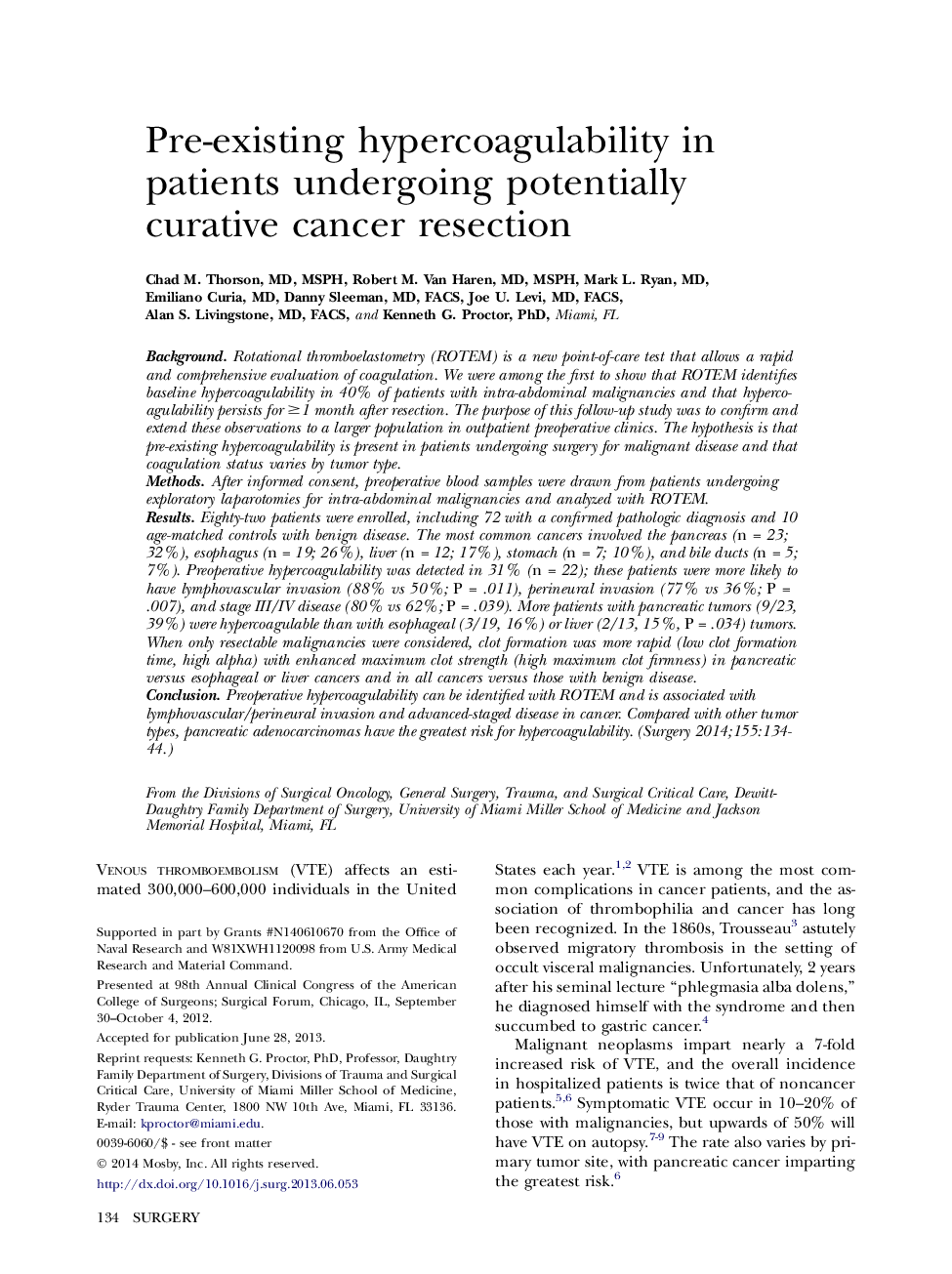| Article ID | Journal | Published Year | Pages | File Type |
|---|---|---|---|---|
| 4306867 | Surgery | 2014 | 11 Pages |
BackgroundRotational thromboelastometry (ROTEM) is a new point-of-care test that allows a rapid and comprehensive evaluation of coagulation. We were among the first to show that ROTEM identifies baseline hypercoagulability in 40% of patients with intra-abdominal malignancies and that hypercoagulability persists for ≥1 month after resection. The purpose of this follow-up study was to confirm and extend these observations to a larger population in outpatient preoperative clinics. The hypothesis is that pre-existing hypercoagulability is present in patients undergoing surgery for malignant disease and that coagulation status varies by tumor type.MethodsAfter informed consent, preoperative blood samples were drawn from patients undergoing exploratory laparotomies for intra-abdominal malignancies and analyzed with ROTEM.ResultsEighty-two patients were enrolled, including 72 with a confirmed pathologic diagnosis and 10 age-matched controls with benign disease. The most common cancers involved the pancreas (n = 23; 32%), esophagus (n = 19; 26%), liver (n = 12; 17%), stomach (n = 7; 10%), and bile ducts (n = 5; 7%). Preoperative hypercoagulability was detected in 31% (n = 22); these patients were more likely to have lymphovascular invasion (88% vs 50%; P = .011), perineural invasion (77% vs 36%; P = .007), and stage III/IV disease (80% vs 62%; P = .039). More patients with pancreatic tumors (9/23, 39%) were hypercoagulable than with esophageal (3/19, 16%) or liver (2/13, 15%, P = .034) tumors. When only resectable malignancies were considered, clot formation was more rapid (low clot formation time, high alpha) with enhanced maximum clot strength (high maximum clot firmness) in pancreatic versus esophageal or liver cancers and in all cancers versus those with benign disease.ConclusionPreoperative hypercoagulability can be identified with ROTEM and is associated with lymphovascular/perineural invasion and advanced-staged disease in cancer. Compared with other tumor types, pancreatic adenocarcinomas have the greatest risk for hypercoagulability.
